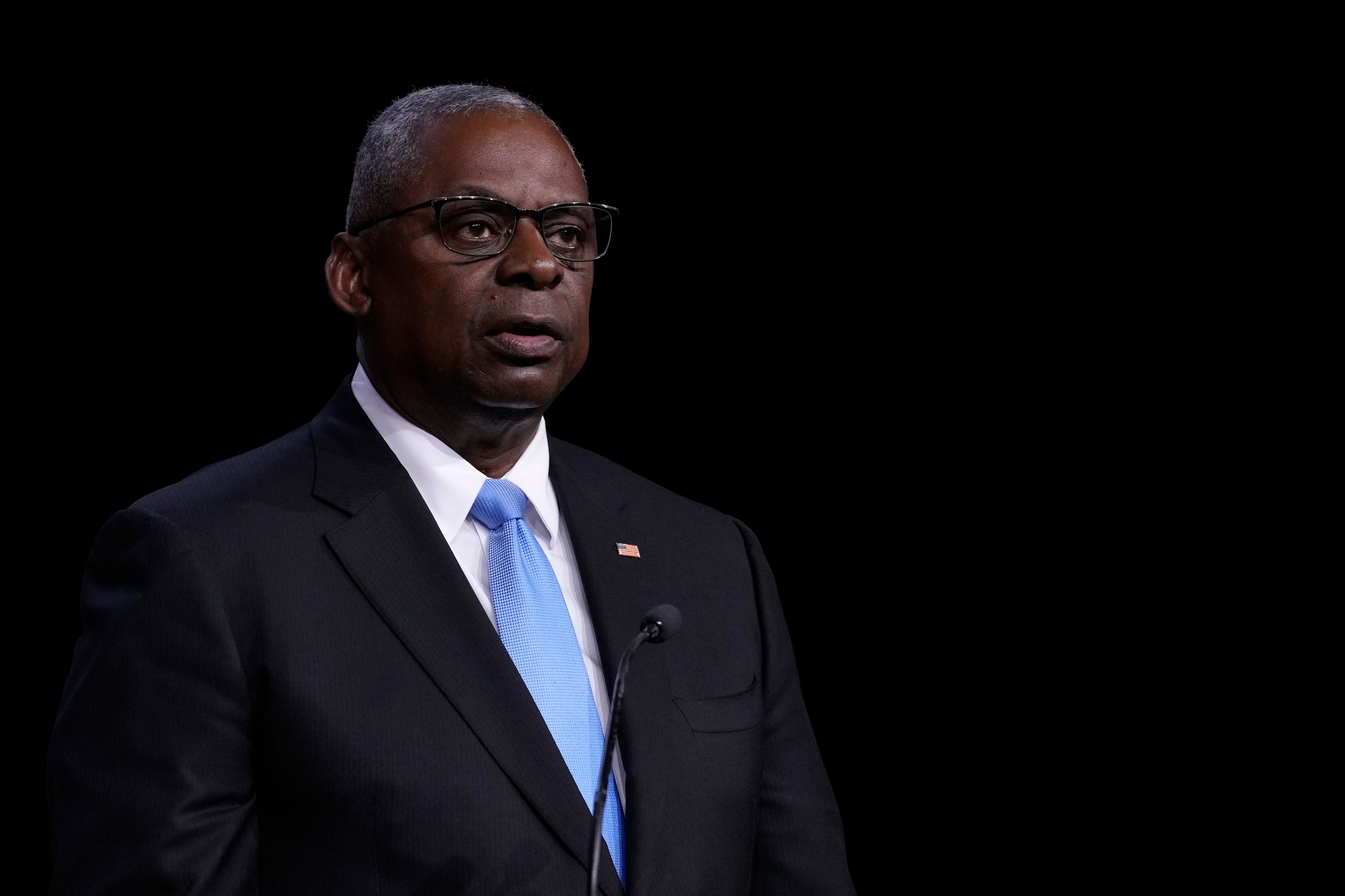Defense chief defends decision to throw out plea deal for 9/11 defendants
Defense Secretary Lloyd Austin has spoken for the first time on his decision to throw out a plea deal for the accused mastermind of al-Qaida’s 2001 attacks and two other defendants

Your support helps us to tell the story
From reproductive rights to climate change to Big Tech, The Independent is on the ground when the story is developing. Whether it's investigating the financials of Elon Musk's pro-Trump PAC or producing our latest documentary, 'The A Word', which shines a light on the American women fighting for reproductive rights, we know how important it is to parse out the facts from the messaging.
At such a critical moment in US history, we need reporters on the ground. Your donation allows us to keep sending journalists to speak to both sides of the story.
The Independent is trusted by Americans across the entire political spectrum. And unlike many other quality news outlets, we choose not to lock Americans out of our reporting and analysis with paywalls. We believe quality journalism should be available to everyone, paid for by those who can afford it.
Your support makes all the difference.Defense Secretary Lloyd Austin spoke for the first time Tuesday on his decision to throw out a plea deal for the men accused in al-Qaida's 2001 attacks, saying that the depth of American losses and sacrifice on 9/11 demand that the military commission trial goes ahead.
“This wasn't a decision that I took lightly," Austin told reporters at an event with Australian officials in Annapolis, Maryland.
“But I have long believed that the families of the victims, our service members, and the American public deserve the opportunity to see military commissions, commission trials carried out" in the 9/11 case, he said.
At the U.S. military commission in Guantanamo Bay, Cuba, meanwhile, lawyers and the judge in the case of accused 9/11 mastermind Khalid Sheikh Mohammed and two other defendants who had also taken plea deals were still coming to terms with Austin's surprise order and its effect on efforts to resolve the more than 20-year-old case.
Mohammed and a total of four other defendants at Guantanamo are accused in the Sept. 11, 2001, attacks, using hijacked passenger jets, that killed nearly 3,000 people in New York, Washington and Pennsylvania. A fourth defendant did not agree to the plea agreement, and a fifth defendant last year was ruled mentally unfit to continue facing trial.
Legal complications, including profound questions over how much the men's torture while in CIA custody in the first years after their capture has tainted the evidence and the case itself, have helped drag out proceedings. The case remains in pre-trial hearings after more than a decade.
After about two years of plea negotiations, the Pentagon-appointed retired general overseeing the military commission last week approved a plea bargain struck by prosecutors and defense attorneys that would have spared Mohammed and the two others the risk of the death penalty, in return for their guilty pleas.
Families of 9/11 victims offered differing opinions, with some welcoming the resolution and others saying they wanted to see capital trials. Senior Republicans in Congress publicly lambasted the Biden administration for the plea bargain.
An order from Austin made public late Friday, in which he said he was revoking approval of the plea bargain and personally assuming that decision-making authority in the 9/11 case, up-ended the deal.
“There's not a day that goes by when I don't think of 9/11 and the Americans that were murdered that day. Also those who died trying to save lives, and the troops and their families who gave so much for this country,” said Austin, who commanded troops in Afghanistan in the aftermath of the Sept. 11 attacks, and was awarded a Silver Star for his service as a commander during the 2003 invasion of Iraq.
Some of the lawyers and civil-rights organizations involved in the Guantanamo Bay cases accuse Austin of bowing to political pressure in overturning the plea deal, and are challenging the legality of Austin's action.
Open hearings are scheduled to resume Wednesday for the first time since Austin's order, and may reveal the defense's response to the overriding of the plea bargain.